
Dog Mosaic in the House of Paquius Proculus in Pompeii (Illustration) Ancient History Encyclopedia
Guard dog mosaics were a frequent feature of the entryways to houses in Pompeii. Archaeological Museum of Naples Remove Ads Advertisement License & Copyright This image was first published on Flickr . Original image by Robin Dawes. Uploaded by Ibolya Horvath, published on 15 September 2020.
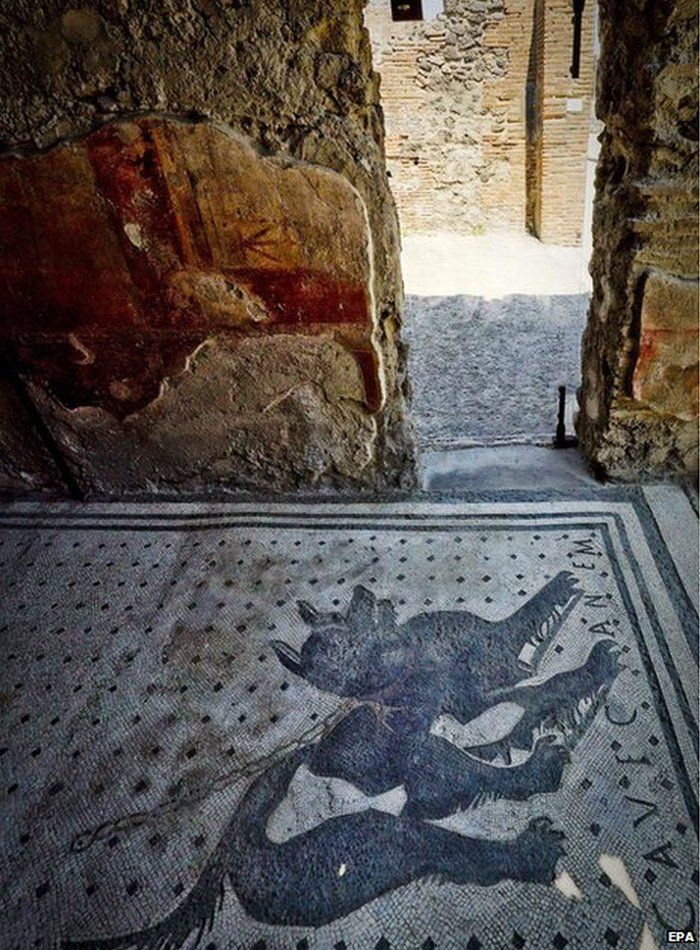
Pompeii guard dog mosaic back on show BBC News
The vestibule floor of the House of Paquius Proculus in Pompeii is paved with a fine mosaic depicting a guard dog chained to a door. The House of Paquius Proculus lies on the south side of the Via dell'Abbondanza. 1st century CE. Remove Ads Advertisement About the Author Carole Raddato

Pompeii with or without children Roman mosaic, Roman art, Pompeii
In what is perhaps the oldest known "beware of dog" sign, this Pompeii mosaic shows the image of a rather fearsome-looking dog along with the warning, "Cave Canem.". This is believed to come from the words "caveat" (beware) and "canine" (dog). The tiled image is at a Roman house in Pompeii known as the House of the Tragic Poet.
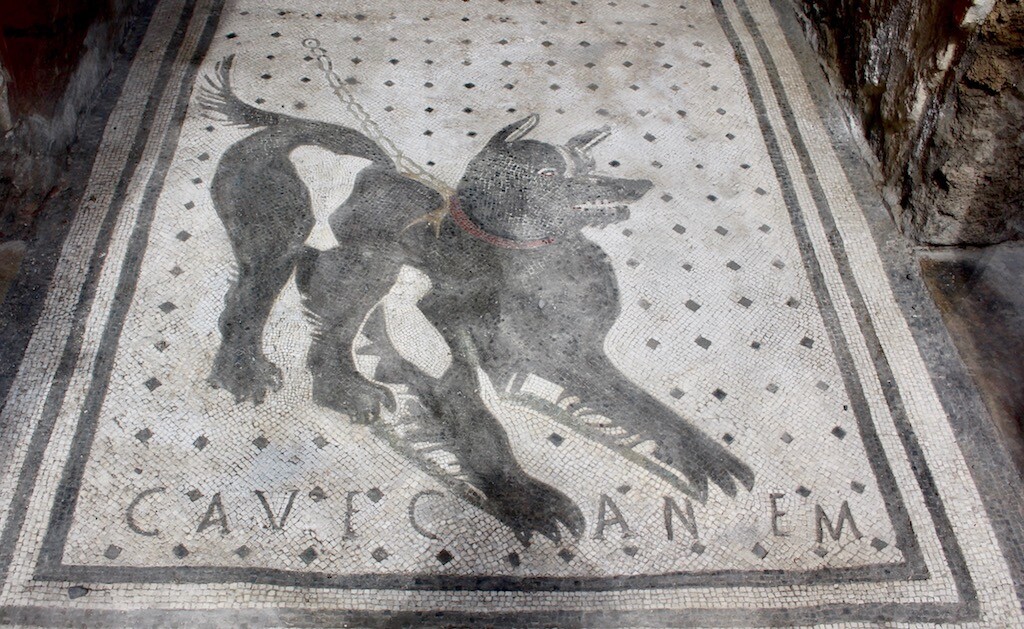
History of Pompeii From Its Rise Until the Devastating Destruction in 79
House of the Tragic Poet The house that preserves the traditional shape of an atrium house is famous for the mosaic that reads CAVE CANEM ("beware of the dog"), at the main entrance, and now protected with glass. It is accessed from a side entrance which leads directly to the peristylium.
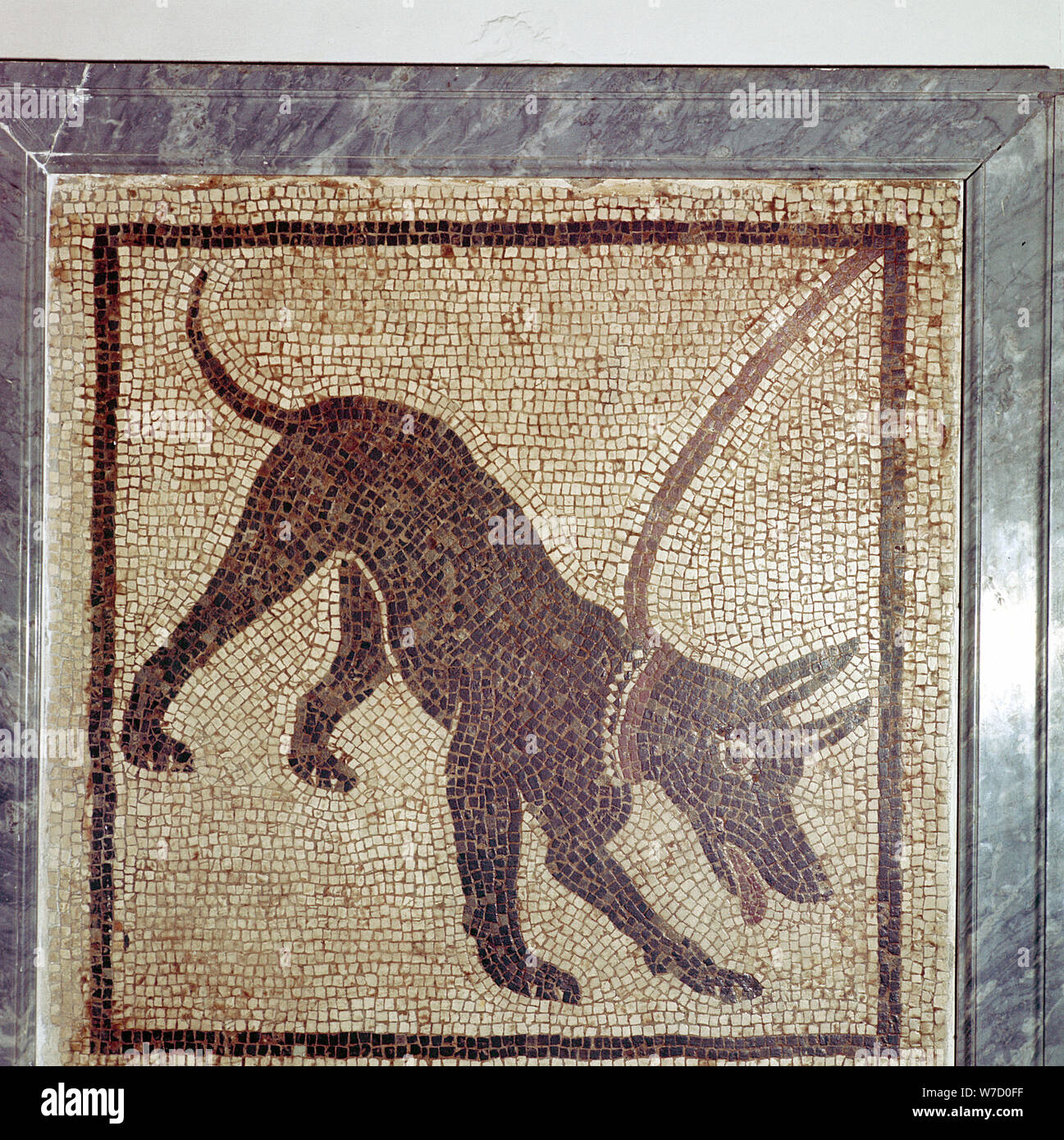
Roman mosaic of dog, Cave Canem, Pompeii, Italy. Artist Unknown Stock Photo Alamy
Found during excavation at Pompeii in 1831, the mosaic depicts the Battle of Issus between Alexander the Great and king Darius III of Persia in 333 BCE, although some argue that it actually shows the Battle of Guagamela in 331, but between the same actors.

Ancient Mosaic Beware of the Dog
World History Encyclopedia. World History Encyclopedia, 21 Jun 2014. Web. 05 Dec 2023. Advertisement A floor mosaic from Pompeii depicting a guard dog. (1st century CE)

DSC_0591 Mosaic detail; dog; Pompeii; pre79 A.D. and the erruption of Mount Vesuvius; National
Pompeii Dog Found on November 20, 1874 The dog was a guard dog tied to a post in the house of Marcus Vesonius Primus The dog was found tied up in the atrium where it was uncovered to collect rainwater The cast shows the dog had a collar around its neck, leading to believe it was tied up, causing it not to flee or run when eruption began

Roman Guard Dog Mosaic (Illustration) World History Encyclopedia
Check out our pompeii dog mosaic selection for the very best in unique or custom, handmade pieces from our fine art ceramics shops.

New Mosaic Art Pompeii Dog Wall Art Mosaic Hand cut Ceramic Etsy
Mosaic at Pompeii Notice at the Glasgow Necropolis Beware of dog sign in Tokyo Beware of the dog (also rendered as Beware of dog) is a warning sign posted at the entrance to a building or other private area indicating that a dangerous dog is within.

Ancient Mosaic in Pompeii Possibly the FirstEver 'Beware of Dog’ Sign
And while few details about Pompeii and its destruction following Mount Vesuvius' eruption in 79 CE are anything less than tragic, there are exceptions — such as the fact that a mosaic reading "Cave Canem," or "Beware of the dog," was uncovered in the ancient city. In addition to the text, the mosaic features a very well-preserved.

dog mosaics Google Search mosaics Roman art, Pompeii, Pompeii, herculaneum
The ancient Roman town of Pompeii lay buried under ash for around 1700 years following the eruption of Mt Vesuvius in AD.79. Excavations of the lost city be.
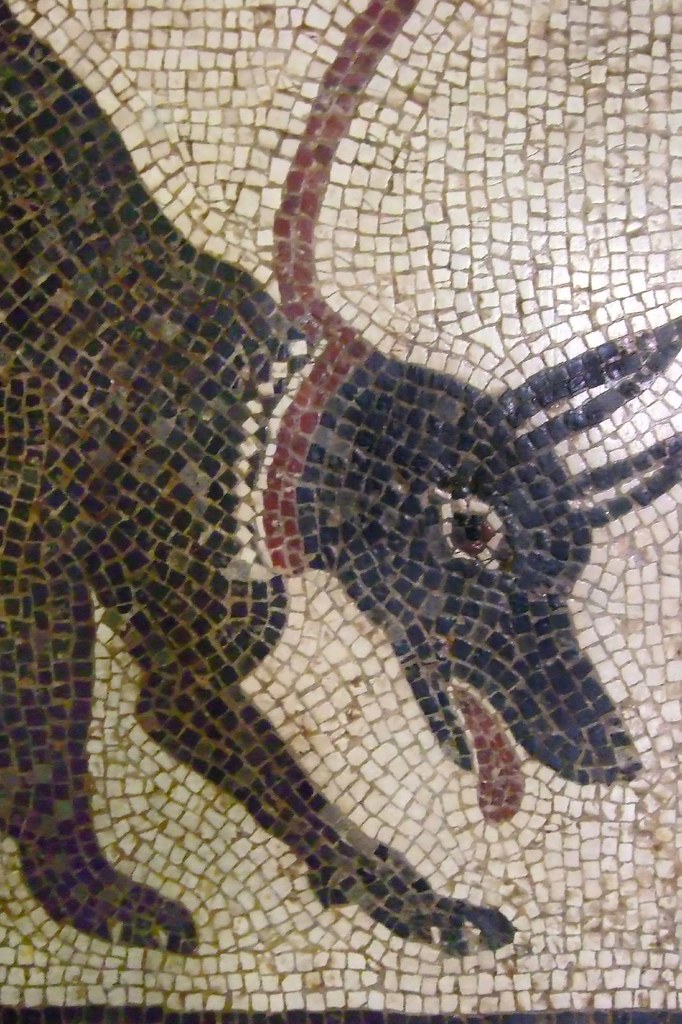
The Famous Cave Canem (Beware of Dog) Mosaic from Pompeii Roman 1st century CE a photo on
On a fateful Day in A.D. 79, the city of Pompeii was destroyed by a massive volcanic eruption. Mount Vesuvius erupted, killing many inhabitants and destroying their belongings. The ravaged ruins of Pompeii were buried under approximately 30 feet of ash and mud for close to 1,700 years.

The Cave canem (Beware of the dog) floor mosaic at the entrance of the House of the Tragic Poet
A Mosaic depicting a growling dog and the well-known words of warning cave canem (beware of the dog) is the decoration found near the entrance of this medium-sized, imperial style house opposite the Forum baths.. The house has a Tuscan Atrium and a Peristyle with a Lararium situated on the rear wall. The Atrium leads into the cubicula (bedrooms) and the Peristyle which was used as a sort of.
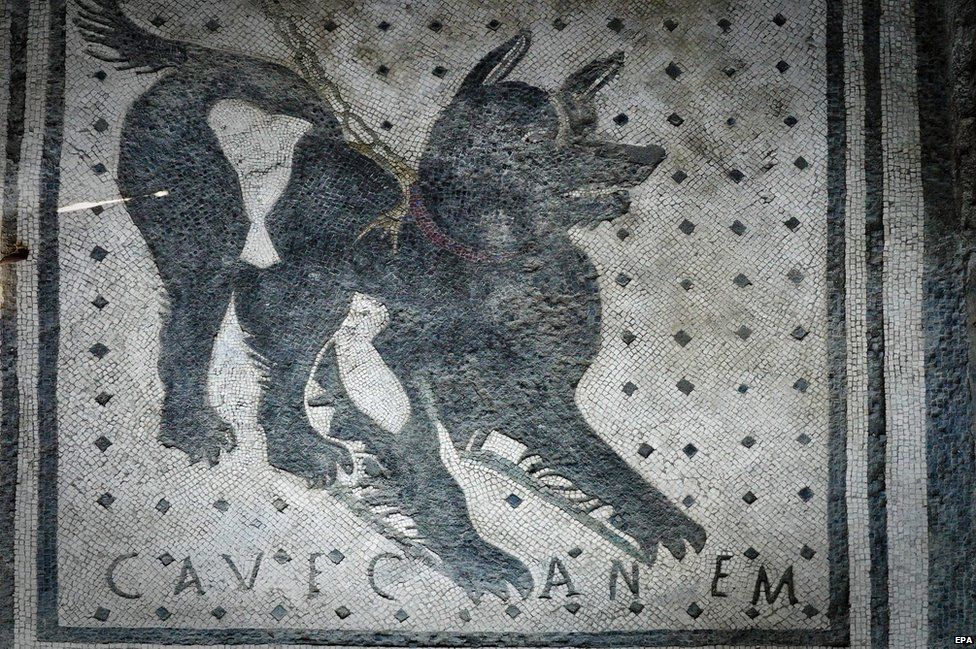
Pompeii guard dog mosaic back on show BBC News
In what might be the oldest known "Beware of Dog" sign, is this amazingly preserved tile mosaic from Pompeii which features an image of a dog and the words " Cave Canem " which loosely translates to "caveat" (beware) and "canine" (dog).

Museum of artifacts — Dog mosaic in one of the houses of Pompeii. 79 AD
Dog mosaics placed at the entrance of peoples' homes, exactly where a modern welcome mat would go. Some even bear a familiar sign: Beware of the dog (cave canem). We know the mosaic guard dogs reflected the real ones - the remains of one poor hound were discovered by excavators still tethered to its post by the door at the House of Orpheus in.

Pompeii mosaic dog hires stock photography and images Alamy
World-Famous Pompeii's Mosaic Dog Restored and On Display Fri, 07/24/2015 - 00:00 Improvements at the archeological site of Pompeii continue with the restoration of one of its most famous symbols: the dog mosaic found in the vestibule of the Domus of the Tragic Poet.